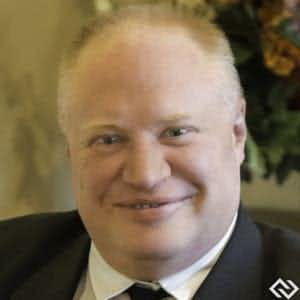Trust Beneficiaries Accuse Trustee of Breach in Fiduciary Duty
Updated on
This case involves a trust that was established by a man in the American Midwest for his children. After the man divorced his first wife and remarried, he named his new wife as the trustee. After several years, the property contained within the trust was sold, with the proceeds being passed to the guarantor as well as the trustee. After the guarantor died, his children from his first marriage, who were listed as the beneficiaries of the trust, alleged that the sale of the property within the trust was done as a result of the grantors decline in mental competence, and that the sale amounted to a breach of fiduciary duty.
Question(s) For Expert Witness
1. Please briefly describe your work in trust administration and with the Uniform Trust Code.
2. Have you ever served as an expert witness in similar disputes between trustees and beneficiaries? If so, please describe.
Expert Witness Response E-135400
 Along with regularly assisting clients with designing a trust tailored to their unique needs then preparing all documents necessary to bring that trust to fruition, I have been involved with the following trust litigation: 1. acted as financial advisor to the plaintiffs in a $4 million California trust dispute; 2. currently defending the trustee in a $700,000 trust dispute; and 3. successfully defended the trustee in a $300,000 Utah trust dispute. My experience in state trust law varies dramatically from other states particularly with respect to the UTC. Based on my knowledge from cases we are defending, I would opine the incompetence argument may have merit but is a fact-intensive analysis that does not lend itself to generalizations. The other issues are entirely dependent on the language of the trust. This state's UTC is clear that any unambiguous provision of a trust always (with rare exception) supersedes statutory language. The provisions themselves are interpreted in the same manner as a contract is interpreted.
Along with regularly assisting clients with designing a trust tailored to their unique needs then preparing all documents necessary to bring that trust to fruition, I have been involved with the following trust litigation: 1. acted as financial advisor to the plaintiffs in a $4 million California trust dispute; 2. currently defending the trustee in a $700,000 trust dispute; and 3. successfully defended the trustee in a $300,000 Utah trust dispute. My experience in state trust law varies dramatically from other states particularly with respect to the UTC. Based on my knowledge from cases we are defending, I would opine the incompetence argument may have merit but is a fact-intensive analysis that does not lend itself to generalizations. The other issues are entirely dependent on the language of the trust. This state's UTC is clear that any unambiguous provision of a trust always (with rare exception) supersedes statutory language. The provisions themselves are interpreted in the same manner as a contract is interpreted.
About the author
Subscribe to our newsletter
Join our newsletter to stay up to date on legal news, insights and product updates from Expert Institute.
Sign up nowFind an expert witness near you
What State is your case in?
Subscribe to our newsletter
Join our newsletter to stay up to date on legal news, insights and product updates from Expert Institute.



